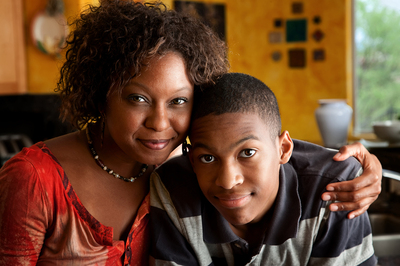
The challenges are manifold for LGBTQ teens, but targeted interventions offer hope.
A growing body of evidence tells us that members of the lesbian, gay, bisexual, transgender, and queer (LGBTQ) community are at increased risk for substance abuse and addiction. There’s good news, however. Research also indicates that early interventions can be an invaluable preventative measure. Here’s a closer look at the phenomenon, along with how parents and caregivers of LGBTQ youth can help.
The Facts on LGBTQ Teen Substance Abuse
LGBTQ teens are twice as likely to experiment with drugs and alcohol than their non-LGBTQ peers, according to an issue brief from the Human Rights Campaign and the Partnership for Drug-Free Kids. Exacerbating the situation? They’re also 40 percent less likely to have family members to turn to for help.
All developing adolescent brains are vulnerable to serious consequences from trying drugs and alcohol and share several common risk factors, including family history, behavioral health disorders, trauma and impulse control problems. However, LGBTQ teens are at increased risk for peer victimization and psychological distress, thereby increasing their risk of addiction. Proposes the report, Preventing Substance Abuse Among LGBTQ Teens, “Being LGBTQ does not cause substance abuse. Rather, specific differences — mostly consequences of prejudice — weaken LGBTQ adolescents’ support systems and increase the pressure for them to use drugs and alcohol. Understanding these differences is crucial for helping LGBTQ teens grow up healthy, happy and substance-free.”
This begs the question: What, specifically, are these differences? For starters, they’re significantly more likely than non-LGBTQ teens to have been excluded, verbally harassed, or physically assaulted. They’re also more likely to have strained relationships with their parents and caregivers, who are of paramount importance when it comes to choices about drug and alcohol use. Childhood abuse, minority stress, gender stereotypes, and peer influence are all factors associated with higher rates of LGBTQ substance abuse.

There’s no more powerful prevention for LGBTQ substance abuse than family member support.
Reversing the Phenomenon
According to researchers, the key to reversing the trend is ensuring that LGBTQ teens have the same access to critical support as all young people. In addition to parental behaviors that help all teens, including discussing expectations, monitoring, and positive reinforcement, LGBTQ teens also benefit from additional measures, including family support for their sexual orientation, gender identity, and gender expression. Good relationships with adults in their lives and safe home and schools are all positive influences in supporting LGBTQ health and wellness — both as they pertain to substance abuse and in general.
Jeremy Goldbach, Ph.D., LMSW, an assistant professor at the University of Southern California School of Social Work, told Social Work Today, “Prevention programs work, but they only really work if the kid feels it’s culturally relevant and it matches them. When we do tailor an intervention, where kids see people and things in those programs that are similar to them, they’re more engaged, and the engagement leads to more skills development, which leads to less drug use.”
Unfortunately, the reality is that even the best efforts cannot guarantee an absence of substance abuse and addiction in the LGBTQ community. The same concept applies to substance abuse treatment: Targeted, LGBTQ-specific strategies facilitate best outcomes.
Furthermore, as LGBTQ community members are also at increased risk for mental health problems, treatment may also include a component aimed at these co-occurring conditions.
Says Elaine M. Maccio, Ph.D., LCSW, an associate professor at the Louisiana State University School of Social Work of working with LGBTQ teens, “It’s not the treatment that’s different but the approach to it that is.” If you love an LGBTQ teen who you think may be struggling with substance abuse and addiction, addressing the issue early can be vital to recovery. To learn more about leading St. Louis area rehab center Harris House’s targeted substance abuse programs for LGBTQ individuals, contact us today.







